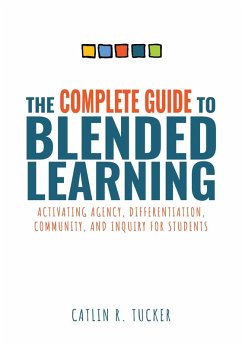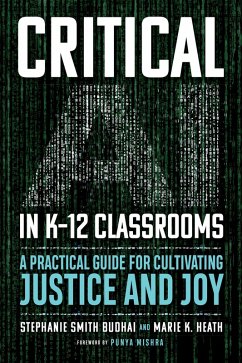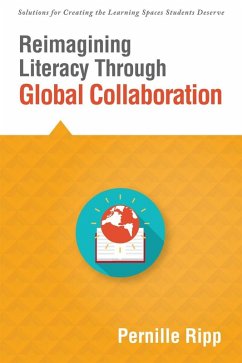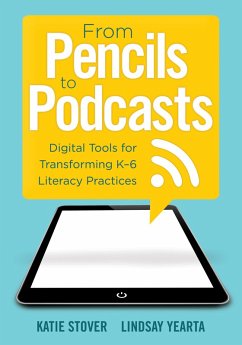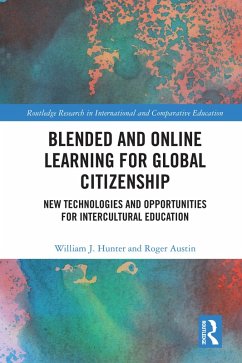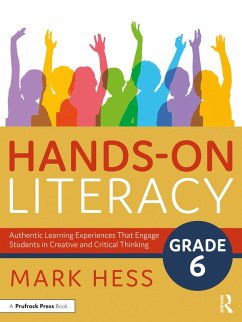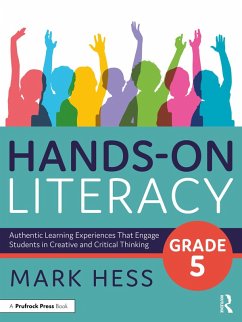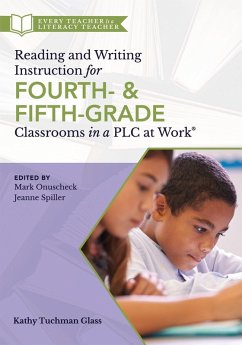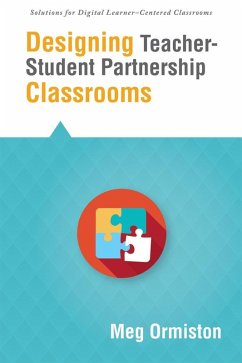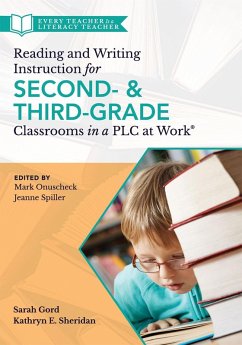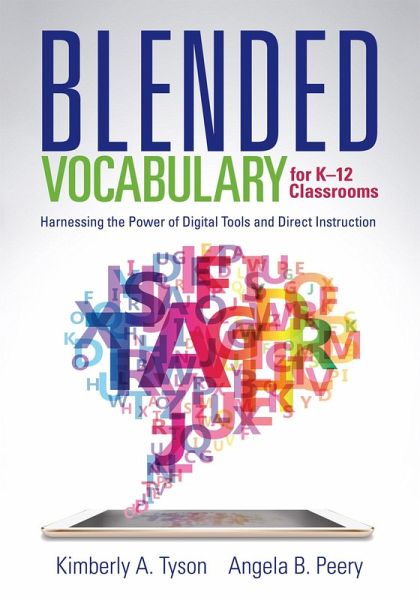
Blended Vocabulary for K--12 Classrooms (eBook, ePUB)
Harnessing the Power of Digital Tools and Direct Instruction

PAYBACK Punkte
10 °P sammeln!
Benefits Understand the importance of students' vocabulary development and ways educators at the classroom, school, and district levels can positively impact vocabulary building. Learn how to develop effective literacy leadership teams to foster a culture of vocabulary acquisition before implementing instructional strategies. Explore digital tools and how to use them to support word learning in interactive ways. Discover instructional strategies for teaching vocabulary to elementary students, secondary students, special education students, and English learners. Explore vocabulary word classif...
Benefits
In Blended Vocabulary for K-12 Classrooms: Harnessing the Power of Digital Tools and Direct Instruction, authors Kimberly A. Tyson and Angela B. Peery note the gap in vocabulary knowledge and instruction that pervades K-12 classrooms and illustrate why it is vital for elementary and secondary students to gain effective vocabulary instruction to achieve at high levels.
Created for teachers, administrators, instructional coaches, and literacy teams, this resource outlines a research-based model that will help you ensure English learners, general education students, and special education students master tiered vocabulary. With greater understanding of how to teach vocabulary effectively and incorporate digital tools, you can develop a blended approach to word learning that makes a significant impact on achievement.
Contents
Chapter 1: A Culture of Word Learning
Chapter 2: A New Model for Effective Vocabulary Instruction
Chapter 3: Methods for Classifying and Selecting Vocabulary Words
Chapter 4: Effective Instruction and Assessment
Chapter 5: Vocabulary Strategies for Elementary Students
Chapter 6: Vocabulary Strategies for Secondary Students
Chapter 7: Vocabulary Strategies for Special Populations
Appendix A: Digital Tools That Support Vocabulary and Word Learning
Appendix B: Suggested Books Containing Tier Two Vocabulary Words for Primary and Intermediate Grades
Appendix C: Annotated Bibliography of Vocabulary Books to Integrate Into Word Learning
- Understand the importance of students' vocabulary development and ways educators at the classroom, school, and district levels can positively impact vocabulary building.
- Learn how to develop effective literacy leadership teams to foster a culture of vocabulary acquisition before implementing instructional strategies.
- Explore digital tools and how to use them to support word learning in interactive ways.
- Discover instructional strategies for teaching vocabulary to elementary students, secondary students, special education students, and English learners.
- Explore vocabulary word classification systems and methods for selecting vocabulary words to include in direct instruction.
- Access activities, recommended books, and other resources that support the three tiers of vocabulary instruction.
In Blended Vocabulary for K-12 Classrooms: Harnessing the Power of Digital Tools and Direct Instruction, authors Kimberly A. Tyson and Angela B. Peery note the gap in vocabulary knowledge and instruction that pervades K-12 classrooms and illustrate why it is vital for elementary and secondary students to gain effective vocabulary instruction to achieve at high levels.
Created for teachers, administrators, instructional coaches, and literacy teams, this resource outlines a research-based model that will help you ensure English learners, general education students, and special education students master tiered vocabulary. With greater understanding of how to teach vocabulary effectively and incorporate digital tools, you can develop a blended approach to word learning that makes a significant impact on achievement.
Contents
Chapter 1: A Culture of Word Learning
Chapter 2: A New Model for Effective Vocabulary Instruction
Chapter 3: Methods for Classifying and Selecting Vocabulary Words
Chapter 4: Effective Instruction and Assessment
Chapter 5: Vocabulary Strategies for Elementary Students
Chapter 6: Vocabulary Strategies for Secondary Students
Chapter 7: Vocabulary Strategies for Special Populations
Appendix A: Digital Tools That Support Vocabulary and Word Learning
Appendix B: Suggested Books Containing Tier Two Vocabulary Words for Primary and Intermediate Grades
Appendix C: Annotated Bibliography of Vocabulary Books to Integrate Into Word Learning
Dieser Download kann aus rechtlichen Gründen nur mit Rechnungsadresse in A, D ausgeliefert werden.



